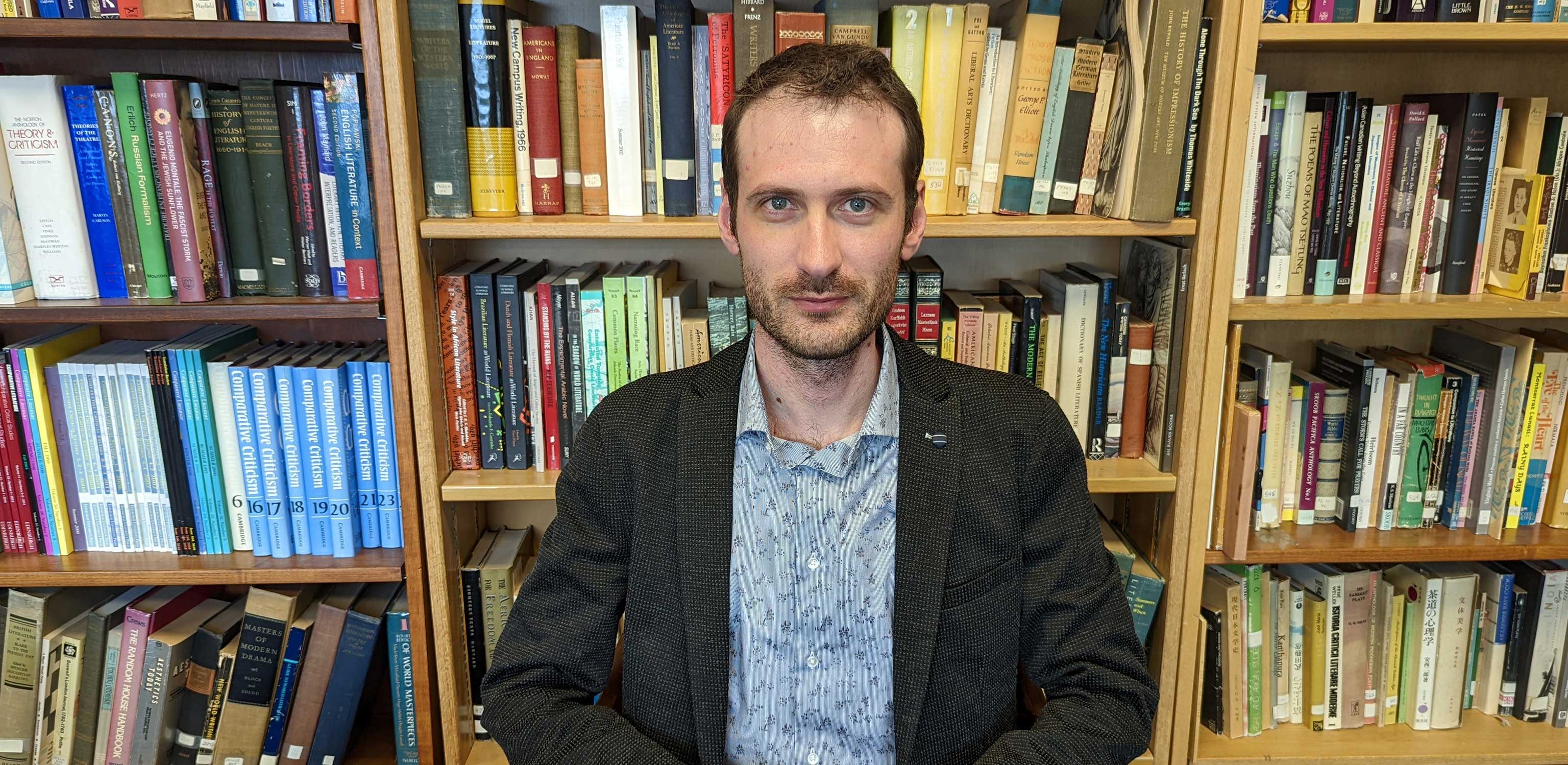What brought you to IU?
When I was an undergraduate student at the University of Manitoba, a professor with whom I was taking a survey course in American literature explained to me she had a degree in Comparative Literature, and suggested I consider the field because of my background. I ended up pursuing an M.A. in English first because of my interest in Hemingway. After graduating with my M.A, I decided that because of my linguistic background, I was in the unique position to put three literary traditions into conversation with one another. I sought admission to IU’s Comparative Literature department because of my interest in translation (I was interested in studying with Bill Johnston), and the department’s strong ties with the Slavic Languages and Literatures department and the department of Near Eastern Languages and Cultures. Coming to IU allowed me to study and compare literature in all the languages I speak.
What has been your favorite thing about living in Bloomington?
Most areas in Bloomington are within walking distance, and you are always likely to see someone you know when you are out for a run or heading to class, which makes you feel like you are part of a community. The size of the town makes it easier to form and maintain friendships with people in the department and outside of it—even if they live a bit too far, since you can always meet with them at a bar or a coffee shop somewhere in the middle. Overall, Bloomington is great because it offers an opportunity to form close-knit ties with intelligent, interesting people from diverse disciplinary and cultural backgrounds.
You’re a couple of chapters into writing your dissertation, would you like to share what it is about?
My dissertation compares Vladimir Nabokov’s and Thomas Pynchon’s fiction on the basis of their interest in the representation of reality through visual media. In the context of their writing, this category includes (but is not limited to) photography, film, television, advertising, memory, representations of history, and works of art. Both authors are interested in the potential visual media has of becoming hyperreal—of appearing more real than reality itself and thereby replacing reality. I find the topic of hyperreality interesting and especially relevant to the social and political dimensions of modern life because our understanding of the world is increasingly determined by what we see represented onscreen.
What do you hope to do with your IU education?
I hope to be able to continue my research and teaching as a professor. One of the reasons I want a career in post-secondary education and research is my belief in the continued importance of studying and teaching the arts and humanities. Studying literature (and art) makes us better human beings because good art tackles life’s spiritual, moral, philosophical, and existential dimensions. As things stand, American culture puts a lot of emphasis on vocational training. Vocational training is important, but human beings are much more than servants of the economy or producers of money. Learning to engage with and understand art helps us realize our full potential as moral subjects and complex, thinking and feelings beings.
In addition, studying the arts and humanities helps us make better sense of the lives we lead in the vast media landscape of the twenty-first century. In this day and age, we consume a lot of fictional texts (film, television, advertising, literature etc.) on a daily basis—more than at any other time in history. Reading these texts critically, with an eye to why we produce them and how they shape our lives and understanding of reality is crucial if we want to realize ourselves as autonomous, self-aware subjects.
Now that you are approaching the end of your time in the program, how would you reflect on your experience at IU?
The last eight years have been stressful, but looking back at things, I also had a lot of fun. I consider myself very fortunate because I met many wonderful people in the department with whom I formed close friendships and made long-lasting memories. I feel proud of everything I learned and all the challenges I overcame. My tenure at the department of Comparative Literature has made me a better thinker, teacher, writer and overall, a better human being. I would not have made it without the support our department’s wonderful, close-knit community of graduate students (of which I am proud to be a member), the mentorship of our faculty, and the tireless dedication of our secretarial staff, who always do their best to help us navigate administrative and life-related issues.

 The College of Arts
The College of Arts